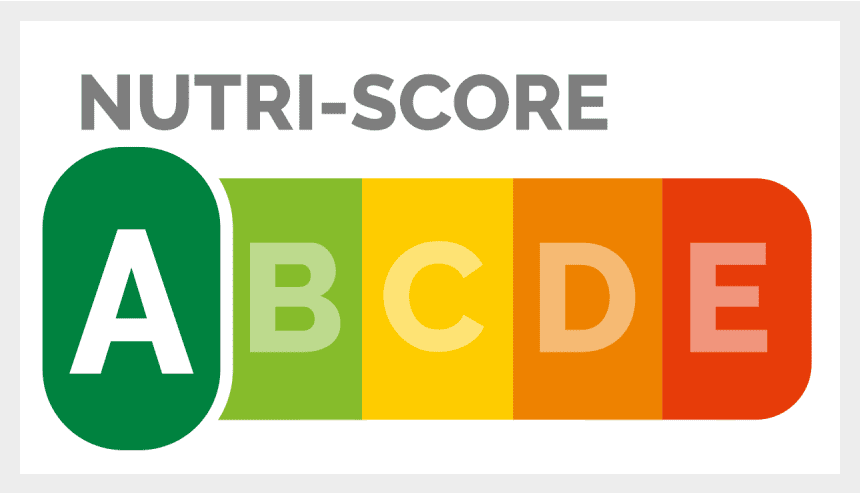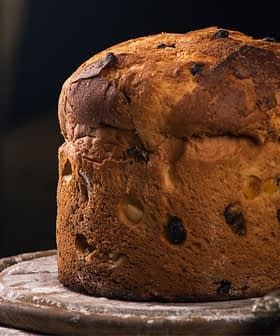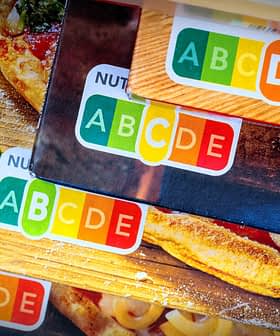Nutri-Score Will Damage Olive Oil Trade, Italian Producers Argue
Italian extra virgin olive oil producers are concerned that the Nutri-Score front-of-pack label could hinder trade and damage the reputation of olive oil as a healthy fat, particularly in countries without an olive oil culture. Many producers believe that the system is too simplistic and could lead to consumer pushback, with some suggesting that nutritional education in schools would be a more effective approach.
Italian extra virgin olive oil producers do not believe that the French-born Nutri-Score front-of-pack label (FOPL) helps European consumers understand the benefits of adhering to an extra virgin olive oil-based Mediterranean diet.
“On the contrary, its simplistic classification could even push customers away from food that has so many scientifically-proven health benefits,” Anna Cane, a pharmaceutical chemist and president of the Association of the Italian Olive Oil Industry (Assitol), told Olive Oil Times.
The introduction of Nutri-Score in Germany is likely to have an impact on our business along with the whole ‘Made in Italy’ merchandise mark.
Cane and many of Italy’s olive oil producers believe that the eventual introduction of Nutri-Score on both internal and foreign markets could hinder extra virgin olive oil trade, mostly in those countries where there is no native olive oil culture that can compete with they see as misleading information.
“If we look at the Nutri-Score classification system with its five colors and five letters, we find extra virgin olive oil faring even worse than some [diet] sodas,” Cane said. “And that happens even if extra virgin olive oil’s beneficial effects on health are the subject of an ever-growing variety of scientific discoveries.”
See Also:Nutri-Score NewsNutri-Score, which is gaining traction across Europe and has been formally introduced by Germany in recent weeks, attributes extra virgin olive oil with a “C” grade.
“That label does not in any way offer an identification of the product, which is labeled C for its fat content,” Dora Desantis, the quality control manager at Agridè Terra di Bari PDO, told Olive Oil Times. “This means that decades of scientific research and the many virtues of such a special aliment are not even considered by the French FOPL.”
“When you look at Nutri-Score you can believe that it could help curtail some obesity problems in the near future, but for extra virgin olive oil producers, it inhibits the market,” she added.
According to Serge Hercberg, a professor of nutrition at the University of Paris and head of the team that devised Nutri-Score, the point of the FOPL is to compare the nutritional qualities of foods in the same category. He maintains that it is not meant to be the only factor used by consumers in their purchase choices.
“[The C for olive oil] is the best score possible for added fats and even for vegetable oils,” he told Olive Oil Times in a July 2020 interview. “The public health recommendations do not suggest consuming olive oil without limits, but they encourage consumers to favor it over other vegetable oils and especially over animal fats.”

However, many of Nutri-Score’s critics argue that the FOPL will not be used this way by many of the consumers who come across it. Desantis, who is also a member of Assitol, believes that this difference comes down to the different culinary cultures in Europe.
“In countries such as Italy or Spain, extra virgin olive oil is part of our food culture and popular culture,” she said. “Such a product variety cannot be easily labeled with a color on a package.”
Doing so in the many countries where there is no olive oil culture is certain to “leave out many things that should be said, things that can not be summarized,” Desantis added.
For these reasons, Desantis, along with many of Nutri-Score’s other detractors, believe the system is too simplistic and olive oil producers will be among the victims of this over-simplification.
“In those countries where customers are traditionally olive oil consumers it is true that it may not be that bad to have extra virgin olive oil classified as C or D,” Cane said, adding that the countries in which there is no native olive oil culture are the ones where the reputation of extra virgin olive oil as a healthy fat is most likely to be damaged.
“In those markets, olive oil does not come cheap, so we must count on the purchase motivation,” she said. “We as producers would really look bad since we have told those consumers that olive oil is one of the best foods you can put on your table.”
Mario Rocchi, a board member of Oleificio RM, a major Tuscan olive oil packager that sells most of its oils internationally, agrees. He said that producers had been sending a clear message about the many health benefits of extra virgin olive oil for years and Nutri-Score threatens to undermine that message.
See Also:Labeling Systems Like Nutri-Score Could Save Lives, Researchers Say“Whether you watch television or read food magazines or social media, you will find health-related contents that focus on extra virgin olive oil,” he told Olive Oil Times. “What message will we now be sending out by putting a warning sign on our bottles?”
Like many of his colleagues, Rocchi believes that “Nutri-Score damages Made in Italy products.” He added that mixed messaging around the health benefits of olive oil could lead to consumer pushback in major markets such as Germany, which is the seventh largest olive oil consuming nation in Europe.
As the number of countries formally and informally adopting Nutri-Score continues to grow, Italian olive oil producers worry that the FOPL also may be adopted by the largest food chains in those countries, in which case any product appearing on their shelves would be subject to the Nutri-Score label.
“Should the large German supermarket chains ask us to label our packages with the Nutri-Score, how could Italian companies avoid it?” Rocchi asked. “No Italian company could afford it.”
“The introduction of Nutri-Score in Germany is likely to have an impact on our business along with the whole Made in Italy merchandise mark,” he added. “What I do not know yet is the extent of the damages that it will produce.”
Rocchi said that instead of focussing so much on food labels, authorities should instead concentrate on nutritional education for children and young adults.
“If the Nutri-Score philosophy is to offer hints of food education to consumers, then we should focus on schools, where food education can be efficiently taught,” he said. “From there, we could invest in a new food culture for future generations.”
“This is food education,” Rocchi concluded, “an algorithm is not.”
Which labeling systems do you prefer?
[wpforms_poll form_id=“84537” field_id=“1” label=“true” counts=“false”]









